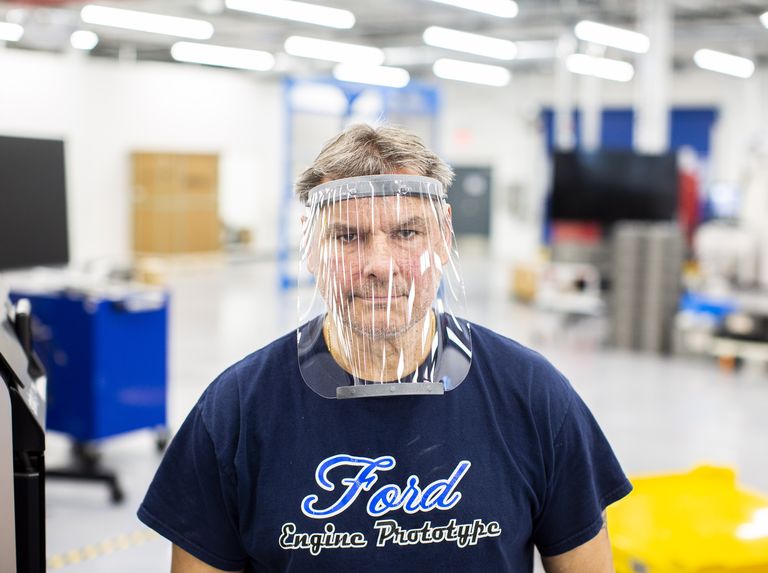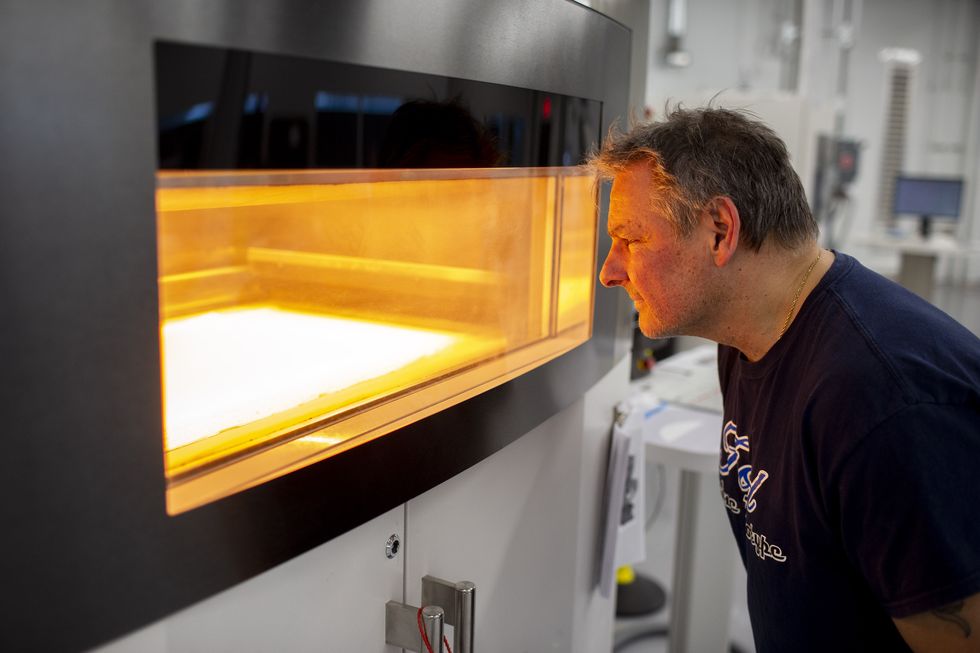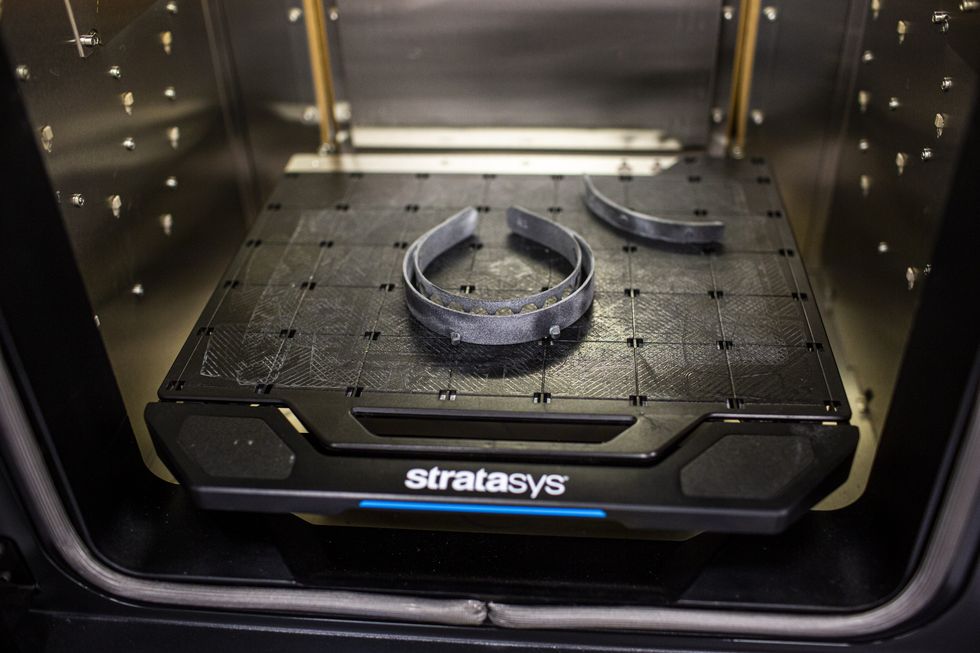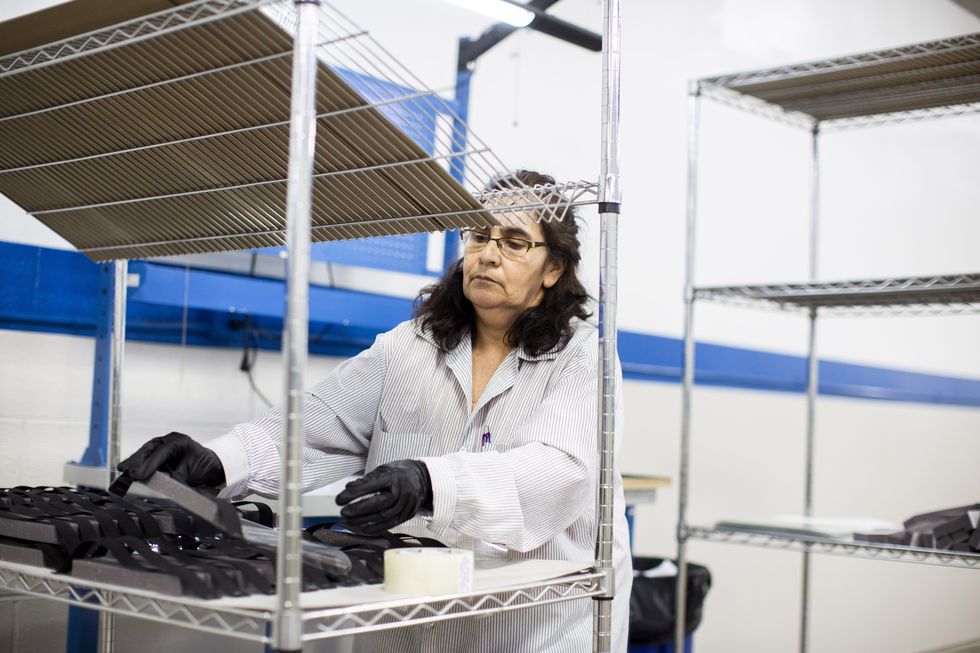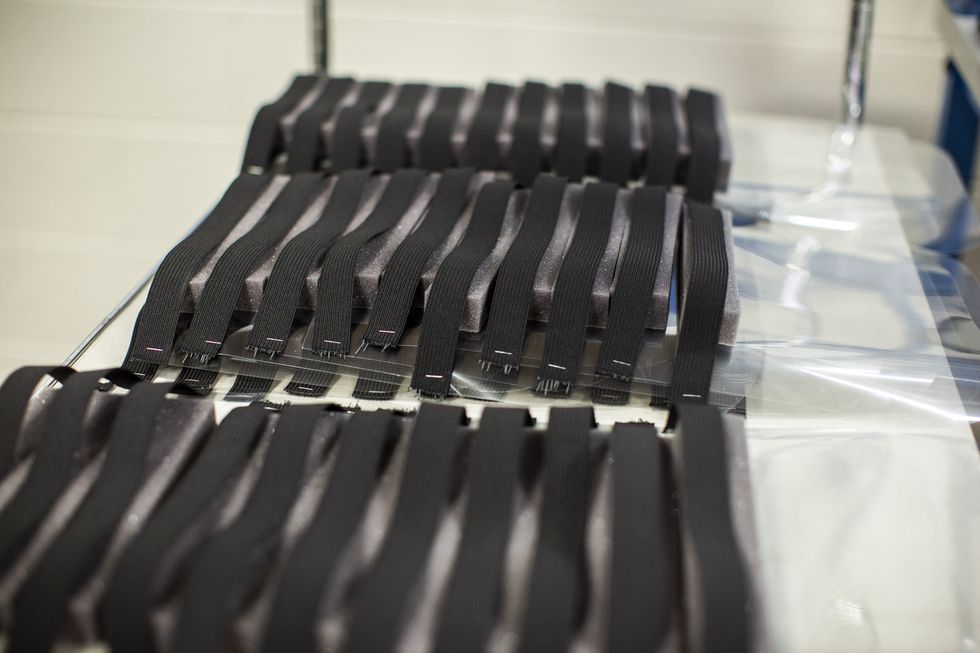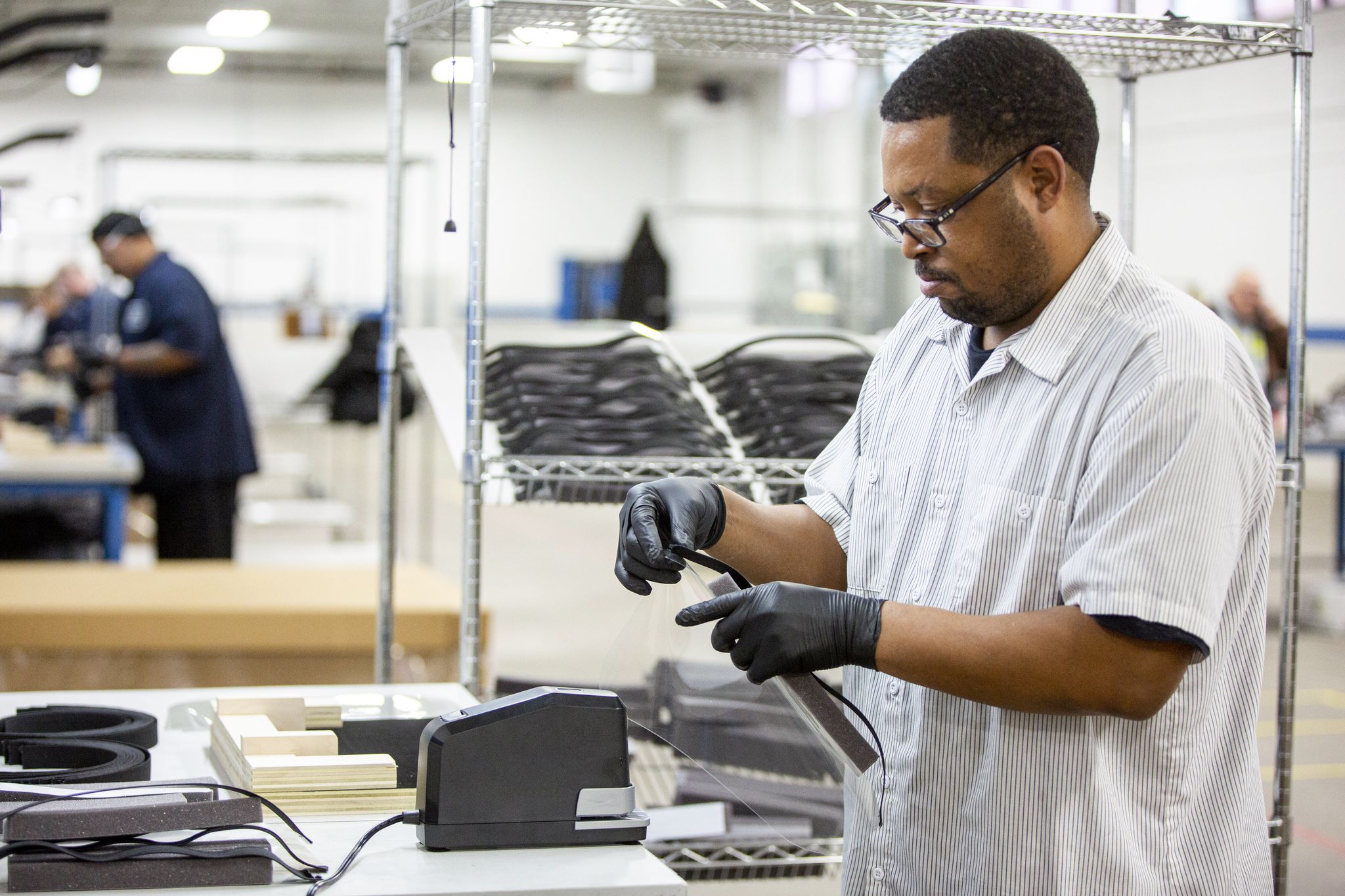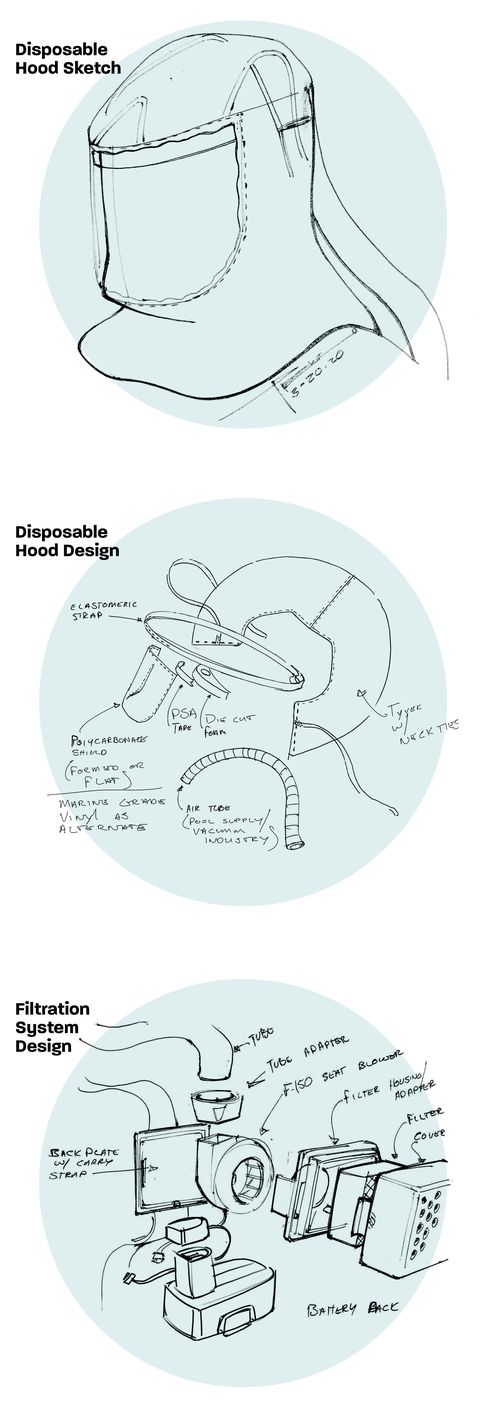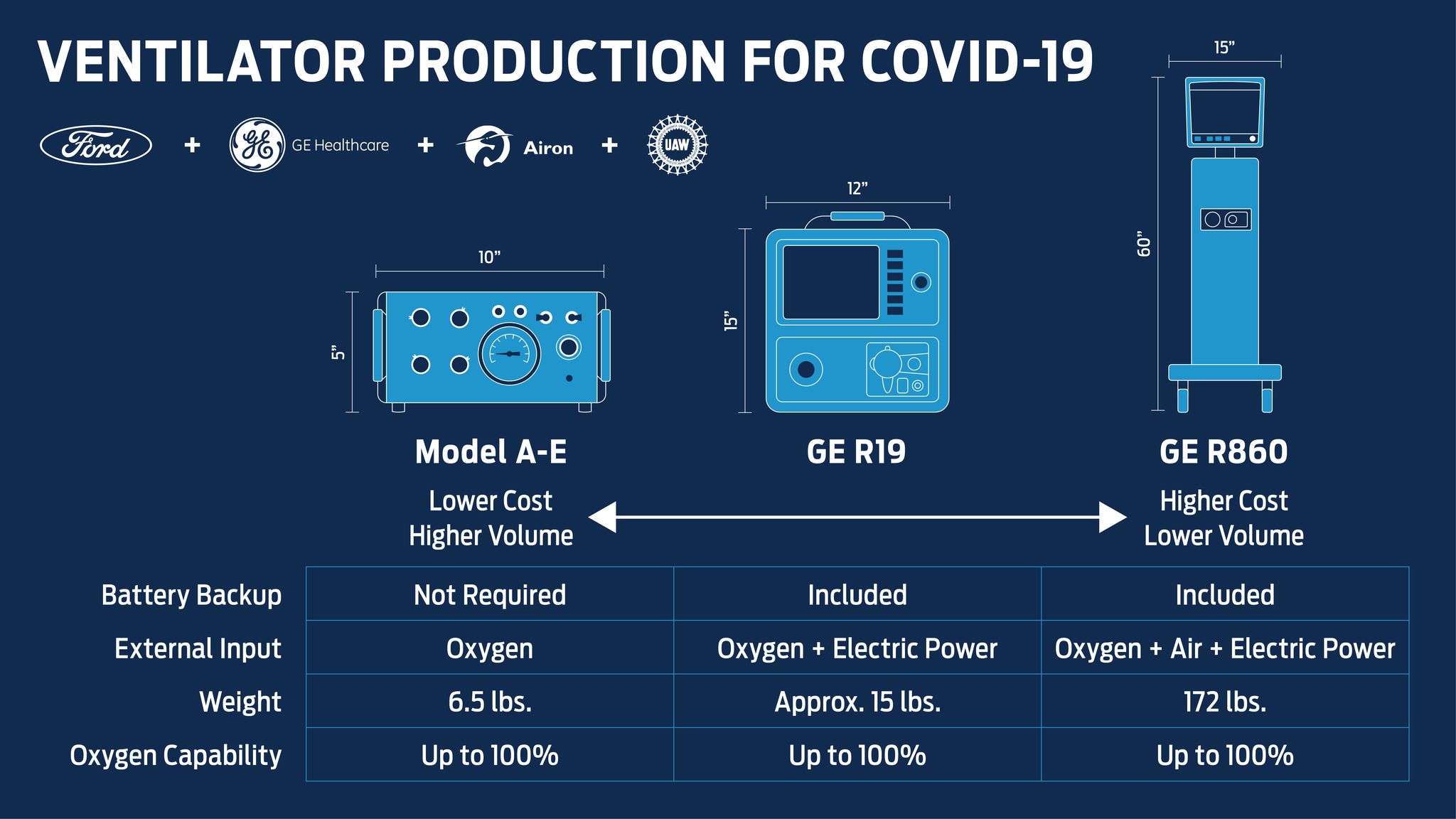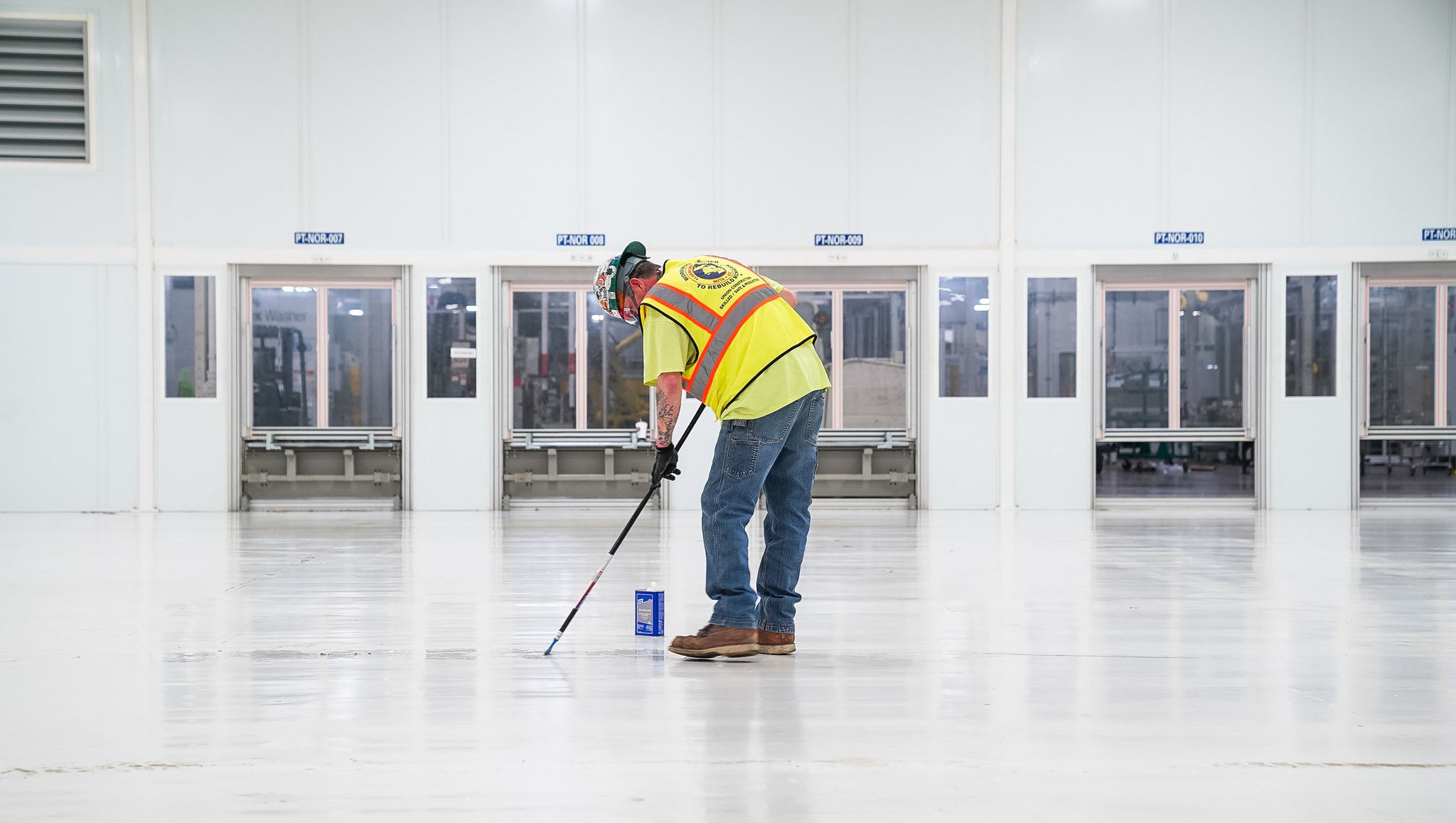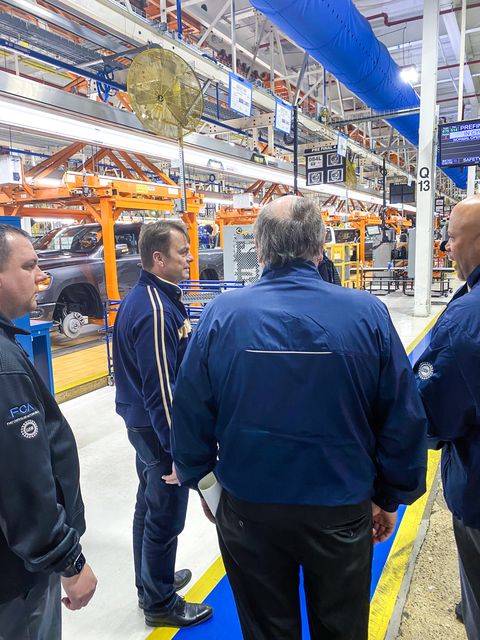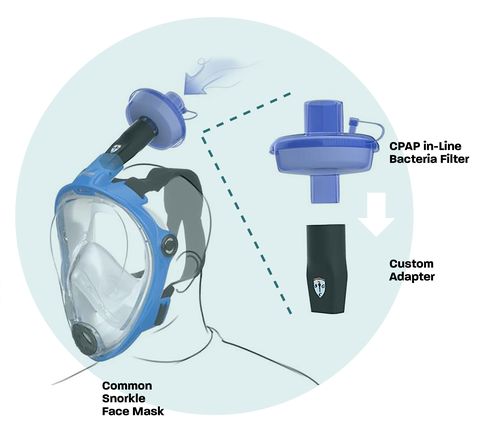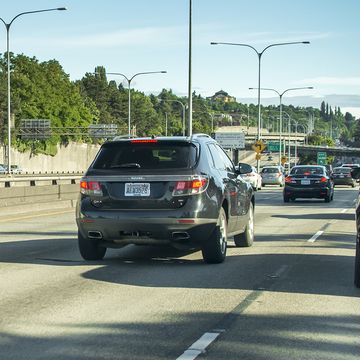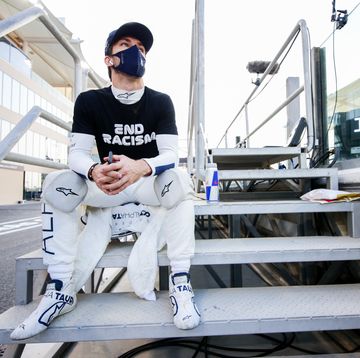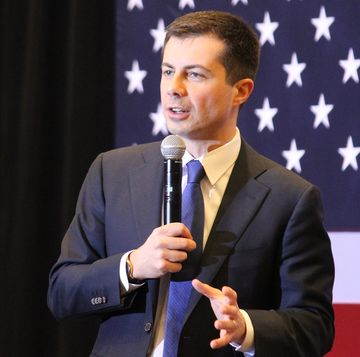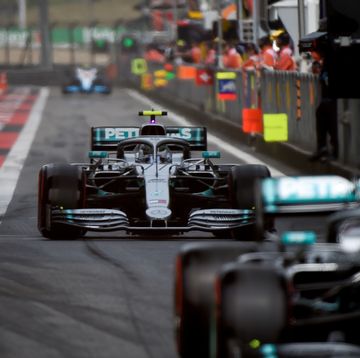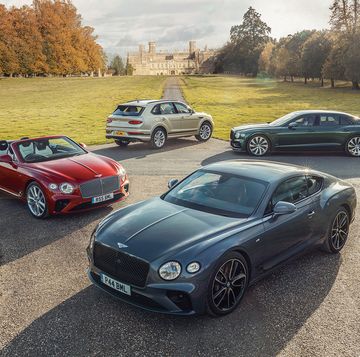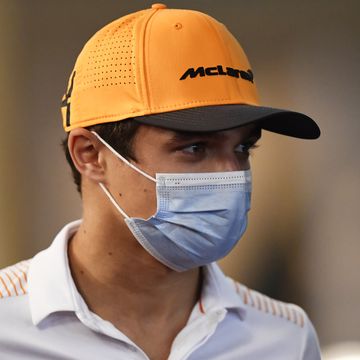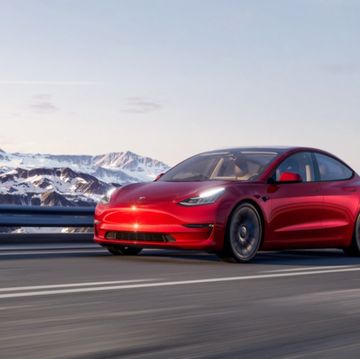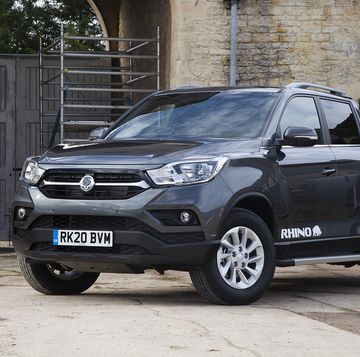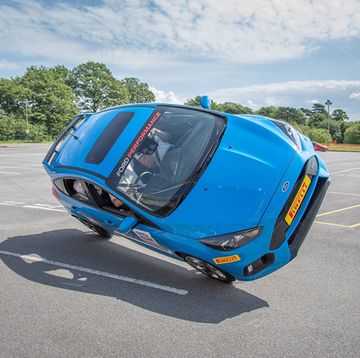If we’ve learned anything throughout this coronavirus debacle, it is that things change so fast it’s hard to keep up. Just last week one automaker’s United Auto Workers liason told Autoweek “there is no way in hell” they could tool up fast enough to make any kind of medical equipment. And yet here we are, suddenly now witnessing the emergence of the Arsenal of Democracy 2.0, fighting a different kind of enemy.
In this case, the main areas of need are not tanks and planes but personal protective equipment, or PPE, including disposable masks, reusable respirators, face shields and other gear for medical workers, as well as hospital ventilators crucial for the treatment of individuals afflicted with the virus.
Since last week, several automakers have announced plans to devote some of their idled capacity to the production of desperately needed medical goods—Ford has gone so far as to announce that it is working in concert with GE and 3M, and GM says it is collaborating with ventilator-builder Ventec. Needless to say, going from the drawing board to production remains a daunting challenge. This will not be as simple as repurposing industrial robots to sew masks instead of weld truck bodies. Moreover, executing these plans in a way that protects the health and safety of workers remains a challenge.
An additional hurdle: Medical equipment production is tightly regulated. Under normal circumstances, strict standards governing the production of medical gear would preclude the use of most commercial PPE for healthcare purposes. Masks that might be suitable for industrial use, for example, cannot normally be used in a hospital; this raises the question of whether gear or equipment produced on a converted automobile assembly line could ever qualify for use by medical professionals.
There is movement on that front, however: As 3M CEO Mike Roman explained in a recent LinkedIn post, recent actions by the U.S. federal government have cleared the way for the use of all of its N95 masks in medical care settings; further action may clear a similar path for the use of other equipment. In response, 3M has ramped up production dramatically. It is on track to produce 100 million masks per month, 35 million of which will be made at 3M’s U.S. facilities; 90% of those are earmarked for healthcare workers, with the rest going to workers in other critical industries. Any contributions from automakers would add to this rapidly increasing, yet still urgently needed, stream of supplies.
Finally, even with automakers mobilizing, and relevant regulations relaxed, there's the matter of time. Experts are predicting an impending surge in demand for intensive coronavirus-related medical care, and mass production—along with the lengthy supply chains that support it—simply cannot turn on a dime.
Here, advanced technologies like 3D printing, used extensively by automakers for prototyping, may offer some hope; a pair of Italian engineers reportedly printed scarce valves able to keep ventilators going in their home country. Ford, for its part, says it is using 3D printing tech in its effort to build respirators.
Still, despite announcing their intentions to contribute to the fight against coronavirus, automakers here have not yet announced concrete plans for how they intend to do so—though again, the situation is evolving rapidly. This is what we know so far about efforts from Ford Motor Co., General Motors, Fiat-Chrysler, Tesla and more.
Ford
Ford and the UAW said they plan to partner with 3M and GE Healthcare to build respirators, ventilators and face masks. The automaker Tuesday said it can use fans from F-150 pickup seats, portable tool battery packs and 3D-printed parts to put together disposable powered air-purifying respirators along with 3M at its manufacturing center near Detroit in Redford, Michigan. Ford is thinking it can make up to 1,000 respirators per month, helping 3M boost production tenfold.
Ford VP Jim Baumbick is spearheading the automaker's effort. In his regular job he's responsible for global product strategy and planning. Speaking from his home, Baumbick told Autoweek the initiative started less than a week ago. "A small internal group of us was talking and wondering what we could do to help," he said, "so we reached out to some hospitals to see what they most needed."
Ford also plans to produce up to 100,000 face shields a week and could have about 75,000 of them finished this week. "Since they were home from school, one of the guys working on this actually had his kids practicing making the shields so we might get a sense of how fast we could make them," Baumbick told Autoweek.
Ford’s partnership with GE Healthcare is designed to goose production of a simplified version of GE’s existing ventilator design. Ford said the ventilators could be produced at a Ford manufacturing site, in addition to a GE location.
“This is such a critical time for America and the world,” executive chairman Bill Ford, who announced the plans on NBC’s Today Show, said in a statement. “It is a time for action and cooperation.
“By coming together across multiple industries, we can make a real difference for people in need and for those on the front lines of this crisis. At Ford, we feel a deep obligation to step up and contribute in times of need, just as we always have through the 117-year history of our company.”
Ford also is working on an initiative in the United Kingdom with several European suppliers to produce additional ventilators.
On March 30, Ford announced that its collaboration with GE Health would result in the production of 50,000 relatively simple GE/Airon Model A-E ventilators “within 100 days,” with capacity for 30,000 per month beyond that.
The statement reads, in part: “Ford will provide its manufacturing capabilities to quickly scale production, and GE Healthcare will provide its clinical expertise and will license the current ventilator design from Airon Corp.—a small, privately held company specializing in high-tech pneumatic life support products. GE Healthcare brought the Airon Corp. design to Ford’s attention as part of the companies’ efforts to scale production of ventilators quickly to help clinicians treat COVID-19 patients.
“The GE/Airon Model A-E ventilator uses a design that operates on air pressure without the need for electricity, addressing the needs of most COVID-19 patients. Its production can be quickly scaled to help meet growing demand in the U.S.”
Initially, Ford will send workers to help increase production at Airon’s Florida facility. Meanwhile, it will begin tooling up for large-scale production at its Rawsonville Components Plant in Ypsilanti, Mich., with a production start target of April 20. The plant will be staffed by 500 paid volunteer UAW-represented employees, according to Ford.
To give a sense of the scale of this operation, Ford says Airon currently produces three ventilators per day. Ford aims to increase that to 7,200 per week, or nearly 1,030 per day. This is in addition to other Ford/GE efforts to put additional ventilator models into wider production.
General Motors
On March 20, GM made preliminary statements about its working relationship with Seattle-based medical device manufacturer Ventec Life Systems. On March 27, General Motors elaborated on these plans—and it's not all about much-needed hospital ventilators, though those are a crucial component of this procurement offensive.
Like several other automakers, General Motors is taking a multipronged approach to its coronavirus response. To start, it will use a Warren, Michigan, facility to produce level 1 surgical masks. Preparation of the facility is underway at time of writing; GM expects production to begin the week of March 30; 50,000 masks will be made per day, with potential to ramp up to 100,000 masks per day if needed.
For some perspective on the unprecedented rate at which automaker mobilization against coronavirus is proceeding, GM says this mask operation was an employee-led initiative that was "created, planned and approved in about 48 hours." Other automakers are implementing plans at a similar rate.
Further, GM will aid in the production of Ventec ventilators both by assisting with the procurement of components (which GM said will be provided at cost) for use in Ventec's plants and by building ventilators at its own facilities. Specifically, GM is tooling up its Kokomo, Indiana, plant to make the equipment. To put these ventilators into production, GM will put roughly 1,000 workers back into action at its Kokomo and Marion, Ind., facilities.
"Depending on the needs of the federal government, Ventec and GM are poised to deliver the first ventilators next month (April) and ramp up to a manufacturing capacity of more than 10,000 critical care ventilators per month with the infrastructure and capability to scale further," a statement from the automaker reads.
Fiat Chrysler Automobiles
On March 23, Fiat Chrysler Automobiles announced that it was leading what it called a “multifaceted global approach” to taking on coronavirus with the production of protective face masks. According to Reuters, these masks will, at least initially, be produced at FCA facilities in Asia. They will be donated to first responders (police, EMTs and firefighters) along with medical workers across the United States, Canada and Mexico.
A statement by FCA CEO Mike Manley noted, in part, that “in addition to the support we are giving to increase the production of ventilators, we canvassed our contacts across the healthcare industry, and it was very clear that there is an urgent and critical need for face masks. We’ve marshaled the resources of the FCA Group to focus immediately on installing production capacity for making masks and supporting those most in need on the front line of this pandemic.”
On March 27, a statement from the automaker outlined further plans:
“Starting immediately, FCA will help provide more than 1 million meals to school-age children in the communities around our principal manufacturing plants in Illinois, Indiana, Michigan and Ohio. The program will then be extended nationwide in the U.S. and to Canada and Mexico, supporting similar relief efforts for kids who would normally access school meal services.”
Moreover, FCA is working out a plan to produce protective gear beyond its initial run of masks. “Drawing on experience from the company’s engineering and logistics team in Italy who are assisting a local ventilator manufacturer, FCA is engaged with other companies producing ventilators and other much needed medical equipment and PPE.”
Tesla
Tesla boss Elon Musk likes to communicate through Twitter, and the company has basically been in recovery mode since three weeks ago when he tweeted: “The coronavirus panic is dumb.” Not satisfied that his foot was far enough in his mouth, a few days later he mocked the worldwide event cancellations and postponements through the lens of the Coachella Valley Music and Arts Festival, tweeting that “Coachella should postpone itself until it stops sucking.”
Finally, around the middle of March, he started to explain himself: “… danger of panic still far exceeds danger of corona imo. If we over-allocate medical resources to corona, it will come at expense of treating other illnesses …”
Which, whether medical experts agree or not, makes a certain amount of sense. Maybe he should have said that first.
Anyway, on March 23 he went into action, not building ventilators, but buying them. With the virus beginning to subside in China, the country has some surplus units. Musk bought 1,255 of these and shipped them to hospitals in California.
Again, on Twitter, Musk said, “Yup, China had an oversupply, so we bought 1255 FDA-approved ResMed, Philips & Medtronic ventilators on Friday night & airshipped them to LA. If you want a free ventilator installed, please let us know!”
Last weekend a team from Tesla donated 50,000 N95 masks to a doctor in Seattle. No official word yet on Tesla buying any more supplies or directly building ventilators.
Scuderia Cameron Glickenhaus
Earlier this week, New York’s Scuderia Cameron Glickenhaus offered up its unfinished Danbury, Connecticut, factory for use as a temporary hospital should the need arise. As of this writing no health authority has pressed the 40,000-square-foot facility into service, but the supercar-builder isn’t stopping there: It’s also working on an effort to make personal protective equipment.
Similar to Ford, SCG is aiming to put existing components to use in a creative way. In this case, the automaker proposes using full-face snorkeling masks and filters hospitals already have on hand—for example, those for various breathing assistance machines, which may be effective at reducing viral loads—connected by an adapter designed by SCG. As an added benefit, the snorkeling masks act as a full-face shield.
In a Facebook post outlining the thinking behind the effort, Glickenhaus noted that the whole point of this effort is to implement “rapidly scalable solutions” to meet the urgent and decidedly nonhypothetical needs of medical personnel as soon as possible, rather than hoping more conventional supplies can be produced in time to make a difference.
“We might not be able to make 1 billion N95 masks, but we can repurpose existing masks and make them safer than the FDA's suggestion of a bandana, or soaking disposable single-use N95 masks in hand sanitizer,” the post explained.
A short video from the company shows how the device works, while noting that it is not an FDA-approved piece of equipment.
As we said, this whole situation is changing very quickly, and we'll be continuing to add updates as we learn them. Watch this space as we chronicle the automakers' efforts.
West Coast Editor Mark Vaughn contributed to this report.


